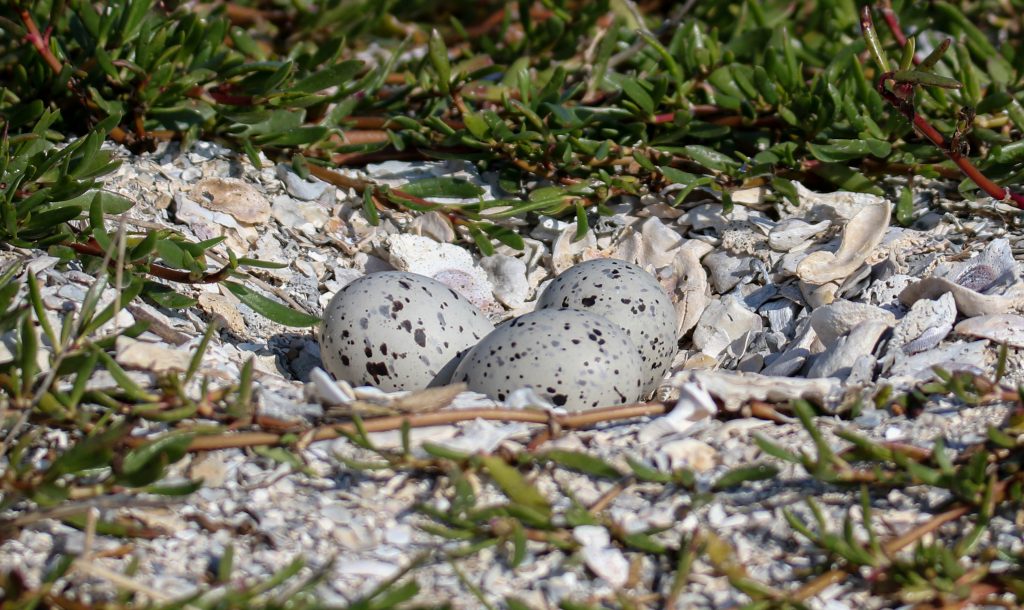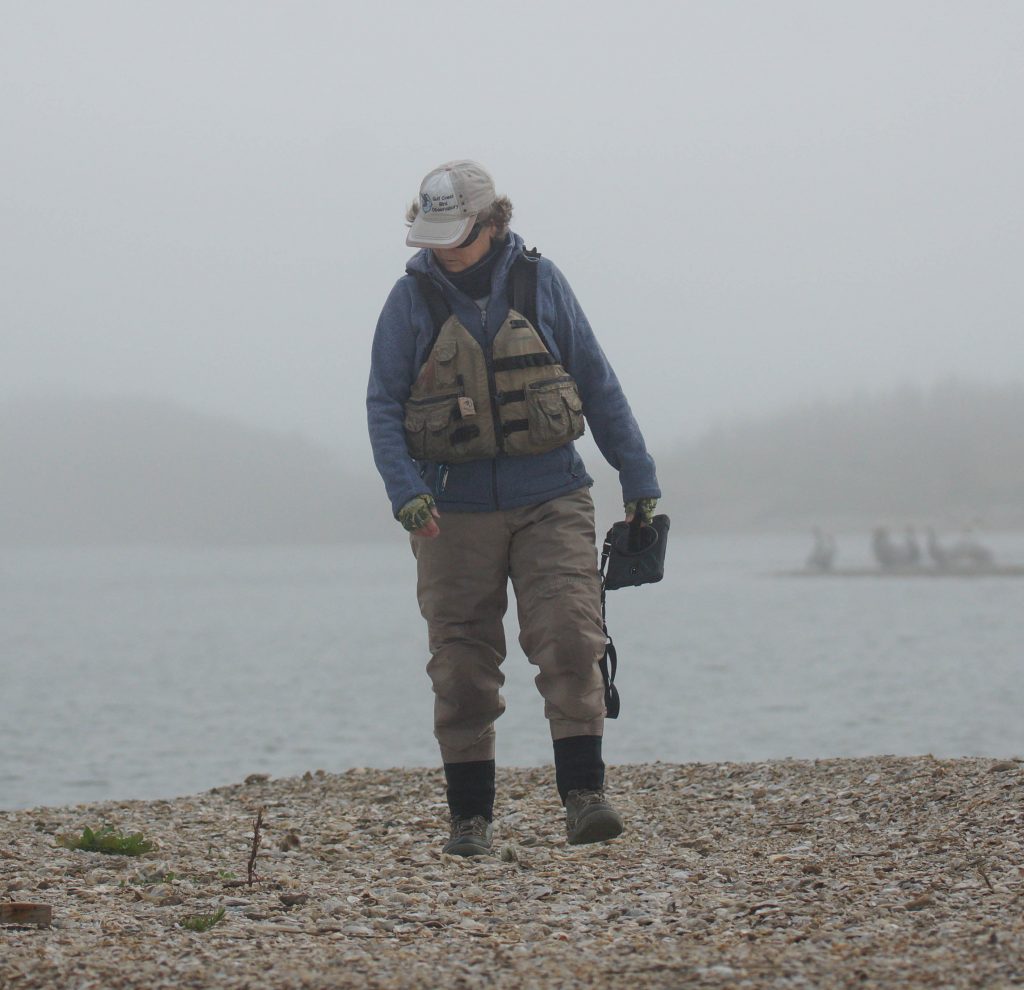By Susan Heath
It’s time! They oystercatchers have begun to nest and we’ve checked on them a couple of times. We went out the West Galveston Bay on January 13 to see if any pairs had changed. Amazingly they were all the same for the ones that were present. Then on January 27, we went back and found the first nest!
LT & JA had a beautiful three egg nest. They were nonchalant about it though and never let on it was there. I am familiar with their ways though and knew to search so we found it any way. I guess they can hear the boat coming because I never see them incubating though clearly they must be.
I was expecting 12 & unbanded to have a nest too but they don’t yet. We checked again this past Wednesday, February 2 and we didn’t find any new nests so it’s just the one for now.
It was quite foggy so not a very enjoyable day! At least it was warmish unlike the two previous surveys.
I’ll be giving a blow by blow once things get going more but for now just know that even though we are having this cold snap, the oystercatchers are out there thinking about eggs! I felt for poor LT & JA having to incubate their nest in this cold but at least it wasn’t snowing and icing on them like last February.
Stay tuned for more updates.
If you like oystercatchers and you want to support this project, you can make a donation (thank you!) on our website here. And how could anyone not like oystercatchers! You can also adopt a pair of oystercatchers to support this project if you’d like. If you adopt a pair, you will receive an adoption certificate for your birds and I will update you monthly on their progress throughout the breeding season. All adoption funds will be used to fund our work for the oystercatchers.
Current Stats for upper Texas coast from Dickinson Bay to East Matagorda Bay: 1 nest being incubated, 0 failed nests, 0 nests with unfledged chicks, 0 nest with undetermined status, 0 chicks fledged
Note: All trapping and banding for this project is in accordance with federal and state permits issued to Susan Heath, GCBO Director of Conservation Research. Bird handling by volunteers is only permitted in the presence of Susan Heath and volunteers are trained in proper bird handling techniques.


